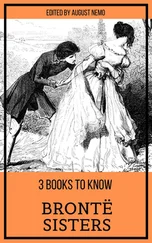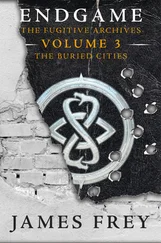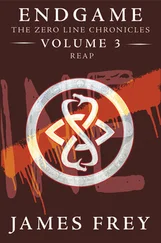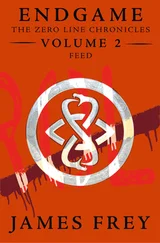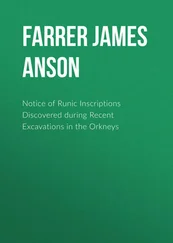James Farrer - Books Condemned to be Burnt
Здесь есть возможность читать онлайн «James Farrer - Books Condemned to be Burnt» — ознакомительный отрывок электронной книги совершенно бесплатно, а после прочтения отрывка купить полную версию. В некоторых случаях можно слушать аудио, скачать через торрент в формате fb2 и присутствует краткое содержание. Жанр: foreign_antique, foreign_prose, на английском языке. Описание произведения, (предисловие) а так же отзывы посетителей доступны на портале библиотеки ЛибКат.
- Название:Books Condemned to be Burnt
- Автор:
- Жанр:
- Год:неизвестен
- ISBN:нет данных
- Рейтинг книги:4 / 5. Голосов: 1
-
Избранное:Добавить в избранное
- Отзывы:
-
Ваша оценка:
- 80
- 1
- 2
- 3
- 4
- 5
Books Condemned to be Burnt: краткое содержание, описание и аннотация
Предлагаем к чтению аннотацию, описание, краткое содержание или предисловие (зависит от того, что написал сам автор книги «Books Condemned to be Burnt»). Если вы не нашли необходимую информацию о книге — напишите в комментариях, мы постараемся отыскать её.
Books Condemned to be Burnt — читать онлайн ознакомительный отрывок
Ниже представлен текст книги, разбитый по страницам. Система сохранения места последней прочитанной страницы, позволяет с удобством читать онлайн бесплатно книгу «Books Condemned to be Burnt», без необходимости каждый раз заново искать на чём Вы остановились. Поставьте закладку, и сможете в любой момент перейти на страницу, на которой закончили чтение.
Интервал:
Закладка:
Great numbers of books were burnt in the reigns of Edward VI. and Mary, but it is not till the reign of the latter that a particular book stands forward as maltreated in this way. And, indeed, so many men were burnt in the reign of Queen Mary, that the burning of particular books may well have passed unnoticed, though pyramids of Protestant volumes, as Mr. D'Israeli says, were burnt in those few years of intolerance rampant and triumphant. The Historie of Italie , by William Thomas (1549), is sometimes said (on what authority I know not) to have been not merely burnt, but burnt by the common hangman, at this time. If so, it is the first that achieved a distinction which is generally claimed for Prynne's Histriomastix (1633). The fact of the mere burning is of itself likely enough, for Thomas wrote very freely of the clergy at Rome and of Pope Paul III.: "By report, Rome is not without 40,000 harlots, maintained for the most part by the clergy and their followers." "Oh! what a world it is to see the pride and abomination that the churchmen there maintain." Yet Thomas himself had held a Church living, and had been clerk of the Council to Edward VI. He was among the ablest men of his time, and wrote, among other works, a lively defence of Henry VIII. in a work called Peregryne , on the title-page of which are these lines:
"He that dieth with honour, liveth for ever,
And the defamed dead recovereth never."
And a sadly inglorious death was destined to be his own. For, shortly after Wyatt's insurrection, he was sent to the Tower, Wyatt at his own trial declaring that the conspiracy to assassinate Queen Mary when out walking was Thomas's, he himself having been opposed to it. For this cause, at all events, Thomas was hanged and quartered in May 1554, and his head set the next day upon London Bridge. He assured the crowd, in a speech before his execution, that he died for his country. Wood says he was of a hot, fiery spirit, that had sucked in damnable principles. Possibly they were not otherwise than sensible, for if he died on Wyatt's evidence alone, one cannot feel sure that he died justly. But had the insurrection only succeeded, it is curious to think what an amount of misery might have been spared to England, and how dark a page been lacking from the history of Christianity!
Thomas's book was republished in 1561: but the first edition, that of 1549, is, of course, the right one to possess; though its fate has caused it to be extremely rare.
Coming now to Queen Elizabeth's reign, the comparative rarity of book-burning is an additional testimony to the wisdom of her government. But (to say nothing of books that were prohibited or got their printers or authors into trouble) certain works, religious, political, and poetical, achieved the distinction of being publicly burnt, and they are works that curiously illustrate the manners of the time.
The most important under the first of these heads are the translations of the works of Hendrick Niclas, of Leyden, Father of the Family of Love, or House of Charity, which were thought dangerous enough to be burnt by Royal Proclamation on October 13th, 1579; so that such works as the Joyful Message of the Kingdom , Peace upon Earth , the Prophecy of the Spirit of Love , and others, are now exceedingly rare and costly. There are many extracts from the first of these in Knewstub's Confutation "of its monstrous and horrible blasphemies" (1579), wherein I fail to recognise either the blasphemies or their confutation, nor do I find anything but sense in Niclas's letter to two daughters of Warwick, whom he seeks to dissuade from suffering death on a matter of conformity to certain Church ceremonies. He insists on the life or spirit of Christ as of more importance than any ceremony. "How well would they do who do now extol themselves before the simple, and say that they are the preachers of Christ, if they would first learn to know Christ before they made themselves ministers of Him!" "Whatever is served without the Spirit of Christ, it is an abomination to God." Nevertheless the young persons seem to have preferred death to his very sensible advice.
Probably the Family of Love were misunderstood and misrepresented, both as regards their doctrines and their practices. Camden says that "under a show of singular integrity and sanctity they insinuated themselves into the affections of the ignorant common people"; that they regarded as reprobate all outside their Family, and deemed it lawful to deny on oath whatsoever they pleased. Niclas, according to Fuller, "wanted learning in himself and hated it in others." This is a failing so common as to be very probable, as it also is, that his disciples allegorised the Scriptures (like the Alexandrian Fathers before them), and counterfeited revelations. Fuller adds that they "grieved the Comforter, charging all their sins on God's Spirit, for not effectually assisting them against the same.. sinning on design that their wickedness might be a foil to God's mercy, to set it off the brighter." But that they were Communists, Anarchists, or Libertines, there is no evidence; and the Queen's menial servant who wrote and presented to Parliament an apology for the Service of Love probably complained with justice of their being "defamed with many manner of false reports and lies." This availed nothing, however, against public opinion; and so the Queen commanded by proclamation "that the civil magistrate should be assistant to the ecclesiastical, and that the books should be publicly burnt." The sect, however, long survived the burning of its books.
But already it was not enough to burn books of an unpopular tendency, cruelty against the author being plainly progressive from this time forward to the atrocious penalties afterwards associated with the presence of Laud in the Star Chamber. All our histories tell of John Stubbs, of Lincoln's Inn, who, when his right hand had been cut off for a literary work, with his left hand waved his hat from his head and cried, "Long live the Queen!" The punishment was out of all proportion to the offence. Men had a right to feel anxious when Elizabeth seemed on the point of marrying the Catholic Duke of Anjou. They remembered the days of Mary, and feared, with reason, the return of Catholicism. Stubbs gave expression to this fear in a work entitled the Discoverie of a Gaping Gulf whereinto England is like to be swallowed by another French marriage, if the Lord forbid not the banes by letting her Majestie see the sin and punishment thereof (1579). Page, the disperser of the book, suffered the same penalty as its author.
The book made a great stir and was widely circulated, much to the vexation of the Queen. On September 27th appeared a very long proclamation calling it "a lewd, seditious book.. bolstered up with manifest lies, &c.," and commanding it, wherever found, "to be destroyed (= burnt) in open sight of some public officer." The book itself is written with moderation and respect, if we make allowance for the questionable taste of writing on so delicate a subject at all. It is true that he calls France "a den of idolatry, a kingdom of darkness, confessing Belial and serving Baal"; nor does he spare the personal character of the Duke himself: he only desires that her Majesty may marry with such a house and such a person "as had not provoked the vengeance of the Lord." But plain speaking was needed, and it is possible that the offensive book had something to do with saving the Queen from a great folly and the nation from as great a danger.
Stubbs, one is glad to find, though maimed, was neither disgraced nor disheartened by his misfortune. He learnt to write with his left hand, and wrote so much better with that than many people with their right, that Lord Burleigh employed him many years afterwards (1587) to compose an answer to Cardinal Allen's work, A Modest Answer to English Persecutors . After that I lose sight of Stubbs.
Читать дальшеИнтервал:
Закладка:
Похожие книги на «Books Condemned to be Burnt»
Представляем Вашему вниманию похожие книги на «Books Condemned to be Burnt» списком для выбора. Мы отобрали схожую по названию и смыслу литературу в надежде предоставить читателям больше вариантов отыскать новые, интересные, ещё непрочитанные произведения.
Обсуждение, отзывы о книге «Books Condemned to be Burnt» и просто собственные мнения читателей. Оставьте ваши комментарии, напишите, что Вы думаете о произведении, его смысле или главных героях. Укажите что конкретно понравилось, а что нет, и почему Вы так считаете.




